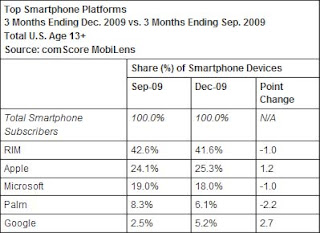I thought that one of the more interesting topics addressed at Search Engine Strategies San Jose a while back was that of SEO and the publishing industry. This is an industry seemingly at war with entities like Google (at least partially), even though there are clearly measures publishers could take, which would make Google and Google News in particular work to their advantage.
Have you had success ranking in Google News? Comment.
Google News is a very useful resource to online news seekers. It seems to get more and more useful as time goes on. For example, they just started incorporating real-time search suggestions into news queries. Publishers should embrace such a tool (Google News) that users themselves embrace, and can ultimately gain them more traffic.

his week, Google has
shared some insight into search engine optimization practices for news search. Publishers could learn a lot from the following video.
In addition to the video, Google's Maile Ohye answered a couple of questions about Google News SEO on the Google News blog. For one, she says that adding a city to the title of the publication will not help publishers target their local audience, because Google extracts geography and location information from the articles themselves.
"Changing your name to include relevant keywords or adding a local address in your footer won't help you target a specific audience in our News rankings," she says.
She also says that Google only wants recently added URLs in publishers' News Sitemaps, because they direct Googlebot to the publishers' breaking information. "If you include older URLs, no worries (there's no penalty unless you're perceived as maliciously spamming -- this case would be rare, so again, no worries); we just won't include those URLs in our next News crawl," says Ohye.
A few weeks ago, a patent was granted to Google for "systems and method for improving the ranking of news articles." The patent was originally filed way back in 2003, so there is no question that some of the details have changed, but within it there are a number of factors highlighted, some of which may be ranking factors Google News considers.
In one "implementation consistent with the principles of the invention," here are some factors that are mentioned:
- a number of articles produced by the news source during a first time period
- an average length of an article produced by the news source
- an amount of important coverage that the news source produces in a second time period
- a breaking news score
- an amount of network traffic to the news source
- a human opinion of the news source
- circulation statistics of the news source
- a size of a staff associated with the news source
- a number of bureaus associated with the news source
- a number of original named entities in a group of articles associated with the news source
- a breadth of coverage by the news source
- a number of different countries from which network traffic to the news source originates
- the writing style used by the news source
A couple months ago, Google posted a Google News publisher FAQ page. That answers questions like:
- Can I suggest my personal website for inclusion in Google News?
- What requirements do I have to meet in order to be included in Google News?
- My website was accepted in Google News a few days ago, but I still can't find my articles. Is something wrong?
- Why aren't my images showing up in Google News?
- Why do all my articles have a strange title in Google News, like "Share this" or "By Jane Q. Journalist"?
- What is the "unique number" or "3 digit" rule?
- Should I submit a News sitemap?
- Why can't I see the option to submit a News sitemap in Webmaster Tools?
- Once I've submitted a News sitemap, do I have to resubmit it each time I publish a new article?
- If I submit a News sitemap, will Google News stop crawling my regular section pages?
- How often does Google News crawl my News sitemap? In Webmaster Tools, it appears to be crawled only once per day.
- Why have my articles stopped appearing in Google News, even though they've been showing up previously?
The moral of the story is that there are a lot of things you can look at if you are serious about getting traffic from Google News, whether you are already being picked up or not. The best part is that most of it is straight from Google itself.















